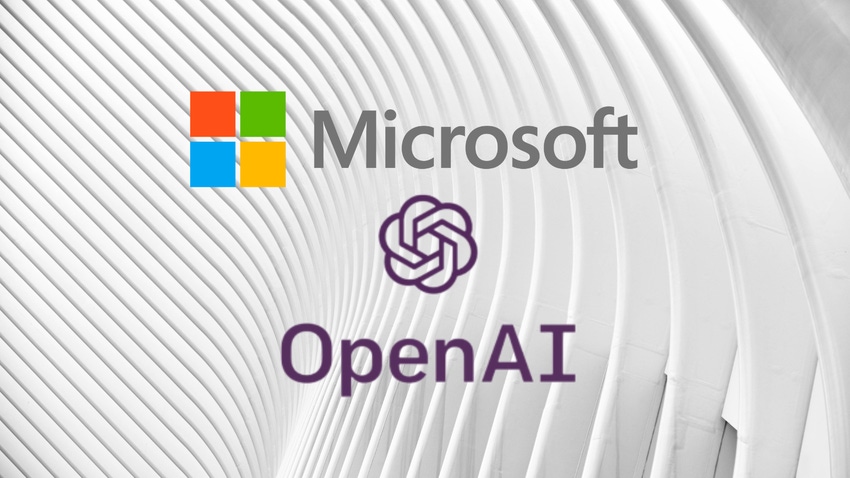AI News Roundup: Microsoft Fills Its OpenAI Board Seat
Also, SEC tells Apple and Disney that they cannot skip shareholder votes calling for them to disclose how they use AI

AI Business brings you the latest news and insights from across the AI world.
To keep up-to-date with coverage of all things AI, subscribe to the AI Business newsletter to get content straight to your inbox and follow the AI Business Podcast on Apple and Spotify.
Microsoft’s OpenAI board pick
Dee Templeton is Microsoft’s pick to join OpenAI's board as a nonvoting observer, according to Bloomberg. She is vice president for technology and research partnerships and operations and has been with Microsoft for over 25 years. According to her LinkedIn profile, she advises CTO Kevin Scott and oversees the operations of the company’s 1,500 scientists and engineers.
The executive joins the newly reconstituted board following last November’s debacle when the old board fired CEO Sam Altman. He was rehired within five days after most of the employees threatened to quit.
Bloomberg sources said Templeton has already attended board meetings, though neither OpenAI nor Microsoft has confirmed her addition.
OpenAI’s board now consists of former Salesforce co-chief executive Bret Taylor serving as chair. Also brought in was former U.S. Treasury Secretary Larry Summers. Quora CEO Adam D’Angelo was the only surviving member.
Microsoft installed Templeton after being caught blindsided by Altman’s ousting (a voting board seat for Microsoft reportedly was a non-starter). CEO Satya Nadella was reportedly livid at Altman’s firing, as the company had invested $13 billion in the startup.
OpenAI’s Adam Goldberg revealed at our AI Summit New York last December that the board would be expanding to nine members.
SEC to Apple, Disney: Hold Shareholder Votes on Use of AI
The U.S. Securities and Exchange Commission (SEC) told Apple and Disney that they cannot skip shareholder votes calling for them to disclose how they use AI.
Labor groups including the AFL-CIO have put forward proposals at their upcoming shareholders meetings, according to Reuters.
Apple and Disney are claiming that AI-related proposals should be excluded as shareholder meetings relate to "ordinary business operations.”
But the SEC wrote in separate letters to both companies that the issue “transcends ordinary business matters and does not seek to micromanage the company.”
Apple reportedly is working on a generative chatbot solution dubbed Apple GPT. Meanwhile, Disney formed a task force last August to oversee the deployment of AI throughout the company. Disney’s stance follows last year’s unprecedented actor and writer strikes, with both groups expressing concerns over AI use in entertainment.
Labor groups wanted information on how Disney’s board is overseeing AI adoption.
Duolingo cuts contractors in favor of AI
Popular translation app Duolingo is cutting 10% of its contractors in favor of using generative AI to create content.
Bloomberg reports that the language-learning app “offboarded” staff members, with a spokesperson saying, “the type of work some of these contractors were doing… could be attributed to AI.”
No full-time employees were affected by the reduction.
Duolingo has been using generative AI to produce content, including scripts for its language lessons, “dramatically faster,” CEO Luis von Ahn said in a November letter to shareholders. The app also uses AI to generate voices for its spoken content and boasts AI-generated feedback as part of its premium offering, Duolingo Max.
Sam’s Club replaces exit greeters with AI
Walmart-owned Sam’s Club is looking to leverage AI to remove the need to have your receipt checked on exit.
The company announced this week that it is testing a system where users walk through a set of blue arches, with built-in computer vision tech to verify purchases. A combination of AI-powered sensors and cameras takes images of items inside your cart and verifies purchases in real-time.
The system is being trialed across 10 Sam’s Club locations and is designed to make store exits faster. Previously, a staff member would check your receipt and items on exit.
Steam greenlights generative AI use in games
Valve has opened the doors to video game developers using AI in games on its video game distribution platform, Steam.
In a blog post, the company announced it is adding an ‘AI disclosure section’ where developers would have to disclose the use of AI in their games.
The disclosures will appear on a game’s page on the Steam store so users can see the extent to which AI was used to develop games. Valve said it is also introducing a reporting system for users to complain if a game features illicit AI-generated content, like infringing materials.
Previously Valve said Steam would not accept games created using AI on its platform while there was legal uncertainty. Last July, a developer attempted to submit a game on Steam that featured AI-generated assets but the platform refused, saying it “cannot ship games for which the developer does not have all of the necessary rights.”
The usually tight-lipped company said it took time to figure out how AI fits into Steam titles but it did not want to rush a decision.
“We'll continue to learn from the games being submitted to Steam, and the legal progress around AI, and will revisit this decision, when necessary,” the blog post reads.
About the Author(s)
You May Also Like


.jpg?width=700&auto=webp&quality=80&disable=upscale)
.jpg?width=700&auto=webp&quality=80&disable=upscale)
.jpg?width=700&auto=webp&quality=80&disable=upscale)
.jpg?width=300&auto=webp&quality=80&disable=upscale)
.jpg?width=300&auto=webp&quality=80&disable=upscale)
.jpg?width=300&auto=webp&quality=80&disable=upscale)
.jpg?width=300&auto=webp&quality=80&disable=upscale)
.jpg?width=300&auto=webp&quality=80&disable=upscale)